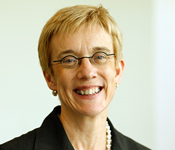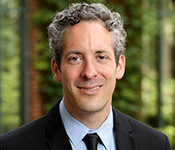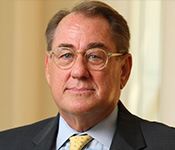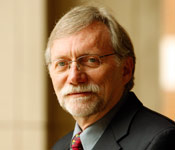UVA Law boasts one of the finest criminal law faculties in the nation, with professors who are shaping a national conversation on justice. Resident faculty have extensive backgrounds in all aspects of the field, from firsthand experience in prosecution and defense at the local, state and federal levels, to post-conviction relief and scholarly discourse that is advancing a more just legal system.
Here are highlights from their careers:
 Barbara E. Armacost
Barbara E. Armacost
- Served as attorney adviser in Office of Legal Counsel, Justice Department.
- Focus of scholarship is Fourth Amendment and regulation of the police.
- Most recent work focuses on policing and immigration enforcement.
 Richard J. Bonnie
Richard J. Bonnie
- Chaired Commission on Mental Health Law Reform in the wake of Virginia Tech tragedy.
- Served as associate director of National Commission on Marijuana and Drug Abuse (1971-73) and as a consultant on drug policy for Nixon, Ford and Carter administrations.
- Represented first four death row prisoners after reinstatement of capital punishment in Virginia in 1977.
- Played key role in federal insanity defense reform after Hinckley verdict in 1982.
- Principal architect of Virginia statutes on mental health and criminal justice since 1980s.
- Met with Vice President Joe Biden on gun violence and is a leader of a national multidisciplinary consortium on gun policy.
 Josh Bowers
Josh Bowers
- Practiced criminal defense, including at the Bronx Defenders.
- Scholarship focuses on police and prosecutorial discretion, plea bargaining and drug courts.
- Has been published in the Columbia and Stanford law reviews.
 Stephen Braga
Stephen Braga
- Director of the Appellate Litigation Clinic.
- Has argued more than 25 federal appeals cases and about 20 before state appellate courts.
- Secured release of two men who spent decades in prison for wrongful murder convictions, including one of the “West Memphis Three.”
- Recognized as a preeminent lawyer in the field of white collar criminal defense, his area of private practice for 33 years before joining UVA.
 Darryl K. Brown
Darryl K. Brown
- Worked as assistant public defender, a source of inspiration for later scholarship explaining how criminal law works.
- Authored recent book “Free Market Criminal Justice.”
 Anne M. Coughlin
Anne M. Coughlin
- Has written a number of articles exploring intersections among criminal law, criminal procedure and feminist theory.
- Leading figure in commentary about violence against women and women in the military.
 Deirdre M. Enright
Deirdre M. Enright
- Director of investigation of the Innocence Project Clinic at UVA Law, and launched the clinic in 2008.
- Has helped vacate unjust murder and rape convictions.
- Featured with students on “This American Life” hit podcast “Serial.”
 Kimberly Kessler Ferzan
Kimberly Kessler Ferzan
- Nationally renowned criminal law theorist.
- Co-author of “Crime and Culpability: A Theory of Criminal Law.”
- Served as trial attorney for U.S. Department of Justice, Public Integrity Section, Criminal Division, 1997-2000.
 Brandon L. Garrett
Brandon L. Garrett
- Author of “Too Big to Jail: How Prosecutors Compromise with Corporations” and “Convicting the Innocent: Where Criminal Prosecutions Go Wrong.”
- Worked with Innocence Project co-founders at their firm, Neufeld, Scheck & Brustin.
- Frequent commentator on criminal justice in the media.
- Currently working on “The Triumph of Mercy,” a book about the dissolution of the death penalty.
 Jennifer L. Givens
Jennifer L. Givens
- Legal director of the Innocence Project Clinic at UVA Law.
- Worked as assistant federal defender.
- Served as senior staff attorney with Virginia Capital Representation Resource Center.
- Secured grant of clemency for mentally ill client and won life sentence for an intellectually disabled client, both of whom were sentenced to death.
 Rachel A. Harmon
Rachel A. Harmon
- Prosecuted federal civil rights crimes for Justice Department, including hate crimes and official misconduct cases.
- Many prosecutions involved excessive force or sexual abuse by police, which has informed her scholarship on the regulation of policing.
 Toby J. Heytens
Toby J. Heytens
- Worked in Office of the Solicitor General, arguing six cases before U.S. Supreme Court.
- Law firm practice focused on appellate litigation.
- Recent scholarship has focused on judging, including Stanford Law Review article offering empirical analysis of judicial reassignment.
 John C. Jeffries Jr.
John C. Jeffries Jr.
- Co-authored case books in criminal law, civil rights and federal courts, and a variety of articles in those fields.
- Co-authored, with Peter Low, the official commentaries to the Model Penal Code.
- Wrote articles on the vagueness doctrine and on burden of proof in criminal law.
 Gregory Mitchell
Gregory Mitchell
- Scholarship focuses on psychology of justice and application of social science to legal theory and policy.
- Most recent book explains the American court system.
- Holds a J.D. and a Ph.D. in psychology from Berkeley.
 John Monahan
John Monahan
- Psychologist who co-authored the seminal “Social Science in Law” with professor emeritus Laurens Walker.
- An expert on behavioral science evidence, criminology and mental health law whose work is cited frequently by courts.
- In U.S. Supreme Court case Barefoot v. Estelle, was referred to as “the leading thinker” on the issue of violence risk assessment.
Founded in 1819, the University of Virginia School of Law is the second-oldest continuously operating law school in the nation. Consistently ranked among the top law schools, Virginia is a world-renowned training ground for distinguished lawyers and public servants, instilling in them a commitment to leadership, integrity and community service.


